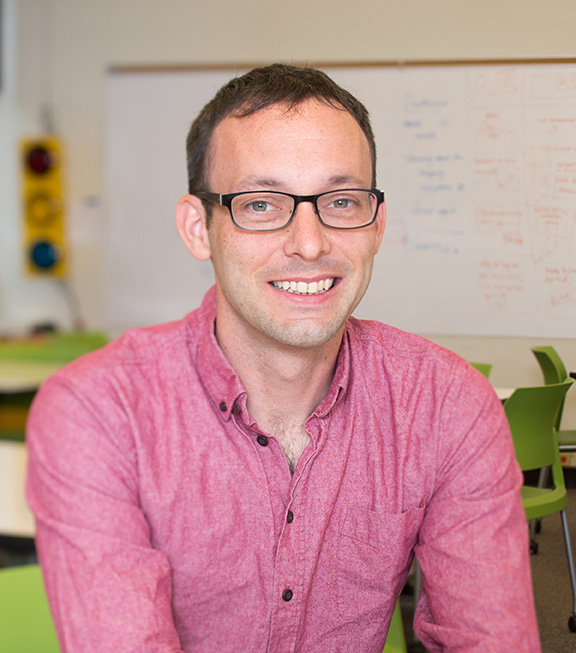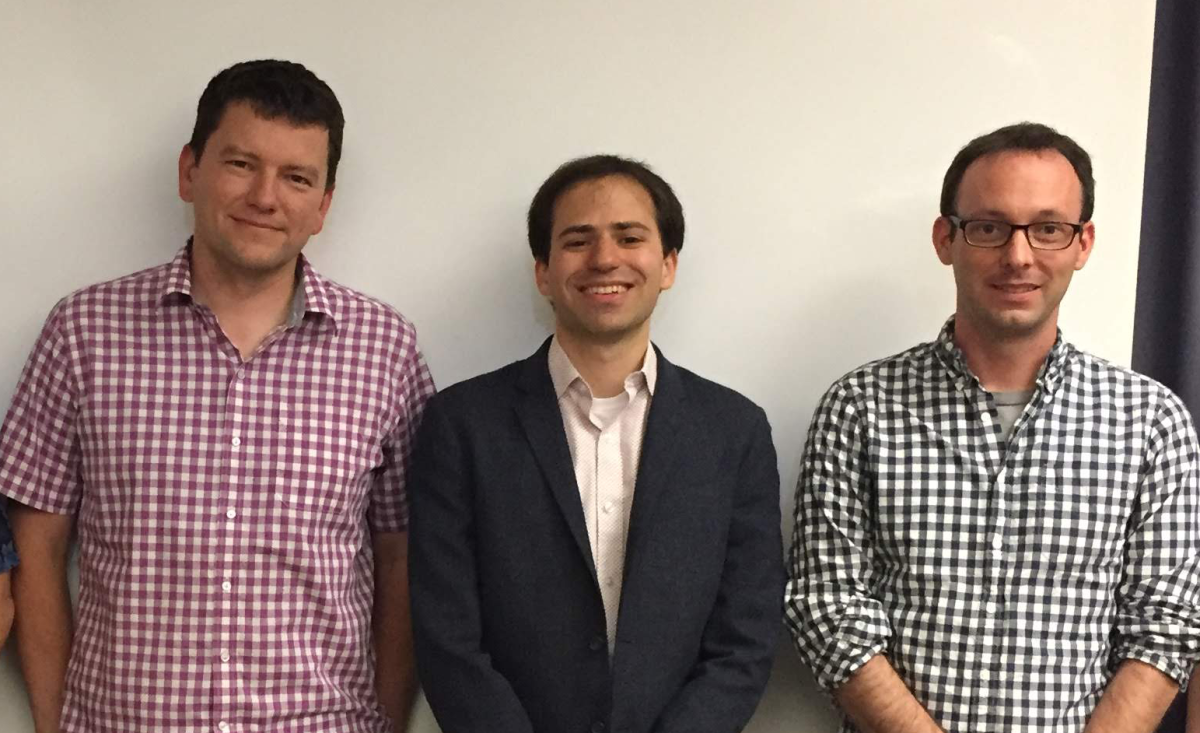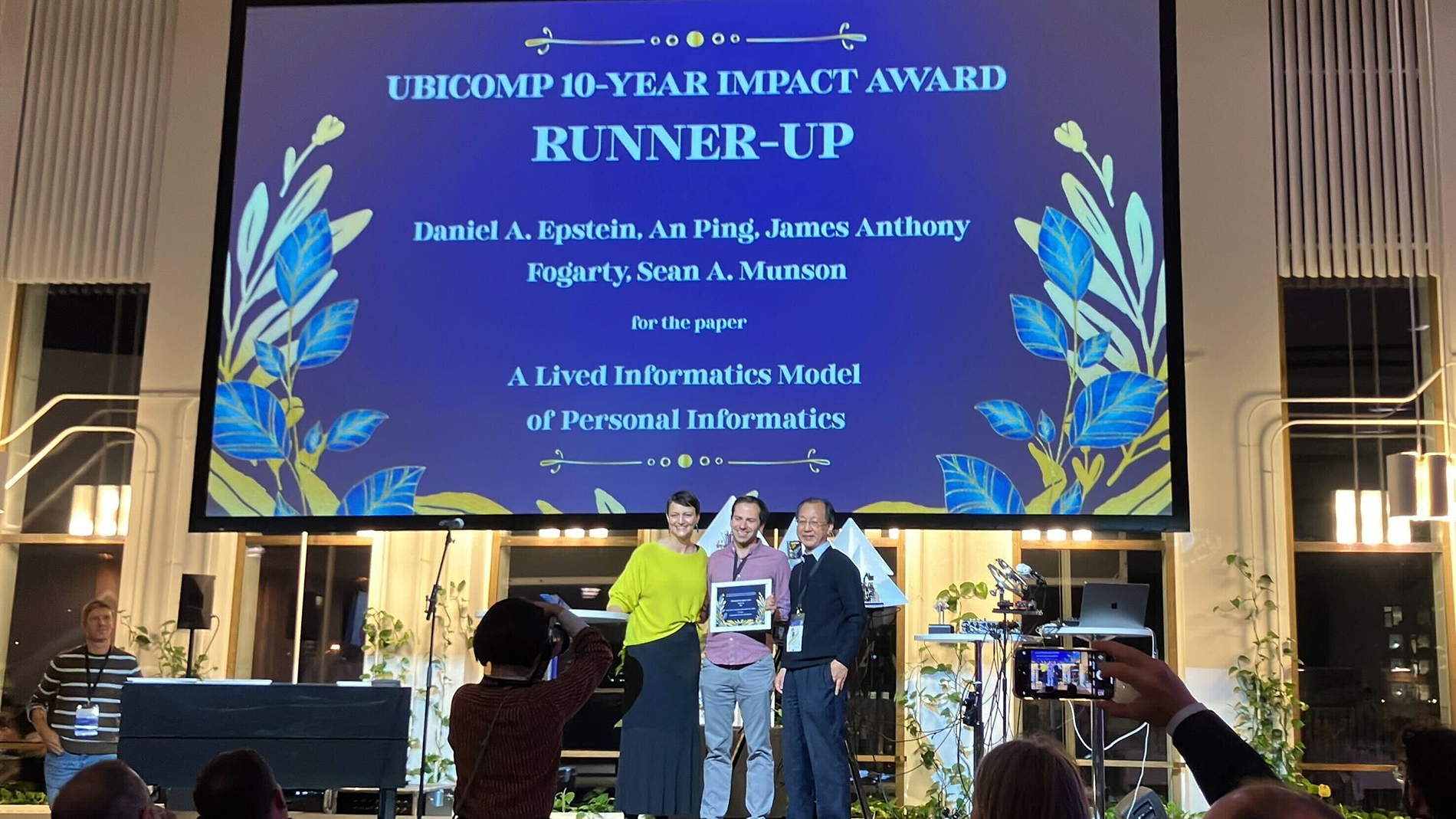Leah Pistorius
October 15, 2025
A landmark research paper co-authored by Human Centered Design & Engineering Professor Sean Munson and colleagues at the University of Washington has been recognized with the Runner-Up 10-Year Impact Paper Award at the 2025 ACM International Joint Conference on Pervasive and Ubiquitous Computing (UbiComp). The award celebrates research that has had a sustained influence on the field a decade after its publication.
Sean Munson, Professor in the Department of Human Centered Design & Engineering
The paper, “A Lived Informatics Model of Personal Informatics” (UbiComp 2015), was authored by Daniel Epstein (now an associate professor of Informatics at UC Irvine and at the time a PhD student in the UW Paul G. Allen School of Computer Science & Engineering), along with An Ping (HCDE MS alumnus and now a senior product designer at LinkedIn), James Fogarty (Allen School), and Sean Munson (UW HCDE).
A new model for everyday tracking
The 2015 paper advanced a conceptual model of how people use personal tracking technologies—such as apps and devices for fitness, health, finances, or location—within the realities of everyday life. Unlike prior models that assumed tracking was primarily about behavior change, this work introduced a “lived informatics” perspective, describing how self-tracking is often interwoven with daily routines, shifting goals, lapses, and resumption.
Drawing on surveys of more than 280 people tracking physical activity, finances, and location, as well as interviews with 22 self-trackers, the researchers mapped out the full lifecycle of tracking practices. Their model described how people decide whether and what to track, select tools, collect and integrate data, reflect on the results, and sometimes lapse in their routines before resuming again. By identifying the rhythms, interruptions, and personal contexts of tracking, the work opened new directions for designing tools that better support real-world use.
Enduring impact
From left to right: James Fogarty, Daniel Epstein, and Sean Munson at Epstein’s PhD dissertation defense at the University of Washington in 2018.
Ten years later, the lived informatics model continues to shape research and design. With more than 600 Google Scholar citations and over 4,000 downloads from the ACM Digital Library, it remains one of the most-referenced papers from UbiComp 2015. While most research papers peak in influence a few years after publication, this one has continued to grow, averaging nearly 70 citations per year since 2021. An analysis of citations in the ACM Conference on Human Factors in Computing Systems (CHI) from 1984-2024 also recognized it as one of 30 milestone papers that moved the field forward. It was the only UbiComp paper among these milestone papers, reflecting the work’s broad impact on how the Human-Computer Interaction community studies and designs tracking technologies.
Researchers have since used the model to frame studies on topics such as reflection on physical activity, air quality and smart home monitoring, chronic health conditions, and menstrual tracking. The model has also helped refine key concepts such as reflection and rumination with ubiquitous technologies and motivating designers to better support tool selection as well as lapsing and resuming tracking.
In recognizing the paper, the UbiComp awards committee noted: “This is one of the highest forms of recognition in the UbiComp community. The panel reviewed all papers published at UbiComp 2015 and found your paper, ‘A Lived Informatics Model of Personal Informatics,’ particularly impactful to the UbiComp community, especially in terms of creating a larger research thrust in personal informatics, grounded in themes for tracking that still resonate today.”
Continuing the work
At this year’s UbiComp, the authors and their students are building on the 2015 paper’s insights with two new studies:
- Investigating Perspectives of and Experiences with Low Cost Commercial Fitness Wearables
Authors: Whitney-Jocelyn Kouaho, Daniel A. Epstein
- Engagements with Generative AI and Personal Health Informatics: Opportunities for Planning, Tracking, Reflecting, and Acting around Personal Health Data
Authors: Shaan Chopra, Katherine Juarez, James Fogarty, Sean A. Munson
Together, these projects extend the lived informatics model into emerging technologies, from affordable wearables to generative AI, continuing to explore how people make sense of their data in everyday life.
Epstein accepted the award on behalf of the team at the UbiComp conference in Espoo, Finland, on October 15, 2025.


